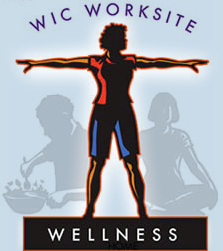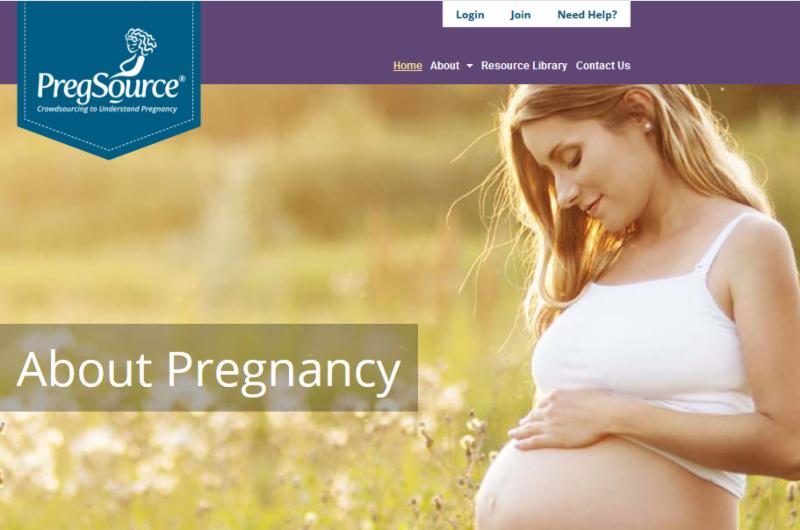
Troubleshooting Morning Routines
Mornings can be hectic, and doubly so during "back to school season." A rough start in the morning can derail your whole work day. Setting a clear, stable
morning routine
can help the whole family get on board and stay on track.
|
Shopping at Amazon?
Support CWA without spending anything extra by using
AmazonSmile!
|
Did someone share this with you? Sign up here to get the CWA Flash directly!
|
|
 |
|

Maternal Mortality Bills
Senator Kamala Harris, along with 13 co-sponsors, has introduced the
Maternal Care Access and Reducing Emergencies (CARE) Act
in the Senate. The CARE Act is intended to end preventable maternal mortality and morbidity and reduce racial disparities in maternal health outcomes through evidence-based quality improvements, such as implicit bias training and pregnancy medical homes. Another bill addressing maternal mortality and morbidity and health inequity was introduced by Congresswoman Robin Kelly, (Illinois) The
Mothers and Offspring Mortality and Morbidity Awareness Act,
Momma's Act
, would improve data collection and best practices to reduce maternal mortality and morbidity. The bills are early in the process, but it is noteworthy these issues are coming forward.
|

Federal Actions
Both the House and Senate will be back in session on Tues. Sept. 4. The Senate did not take a summer recess and in funding actions, last week passed the
Labor-HHS appropriations. Of interest here is funding for critical public health programs including the CDC, NIH and Title V MCAH. A summary of the
MCAH funding is provided by the Association of Maternal & Child Health Programs, AMCHP.
|
Join CWA in Welcoming Jodi!
We are happy to announce that Jodi Mulligan-Phile has joined the CWA team. Jodi has been active in the Sacramento area, most recently serving as Development Director for Wellspring Women's Center. She enjoys the challenge of connecting and building relationships, and finding solutions for multiple partners. As the CWA Project Coordinator, she will work on a range of projects including the conference curriculum, Well WIC Worksite, WIC Can Help and a wide variety of grant projects. She looks forward to engaging on diverse issues, and getting to know the WIC community. She and her wife are new parents of a six month old son.
|

Breastfeeding May Reduce Risk of Stroke
A new
study from the American Heart Association
finds that breastfeeding may reduce the risk of stroke - the third leading cause of death for women. Researchers examined data from 80,191 women from
The Women's Health Initiative Observational Study
; compared with women who had never breastfed, stroke risk was 23% lower overall in women who did. It was most pronounced in non-Hispanic black women, who had a 48% lower risk, followed by Hispanic women, who had a 32% lower risk. White women showed a 21% lower risk. There was a slightly lower reduction in overall stroke risk, 19%, for women who had breastfed for at least one to six months. The guidelines, set by the
American Academy of Pediatrics
, recommend that women exclusively breastfeed for at least six months.
|

No Amount of Alcohol Consumption is Safe
A global, 26-year study published in The Lancet indicates that no amount of alcohol is safe. Researchers say that while moderate drinking may protect against heart disease, the potential to develop cancer and other diseases offsets these potential benefits, as do other risks of harm. The report urges governments to revise health guidelines to suggest lower levels of consumption. The study examined several risks associated with alcohol consumption, including diseases, driving accidents and self-harm. According to the report, alcohol led to 2.8 million deaths in 2016. It was the leading risk factor for disease worldwide, accounting for almost 10 percent of deaths among those ages 15 to 49.
|

Depression in Mothers Impacts a Child's Immune and Psychological Health
Researchers who followed 125 babies from birth through 10 years say a mother's depression may have long-term effects on her child's immune system and psychological health. About 43% of the mothers had a diagnosis of major depression, and the rest constituted a control group. Children's and mothers' saliva was tested for cortisol, as well as for an antibody called secretory immunoglobulin A, or SIgA, high levels of which indicate activation of the immune system. They also visited the families to assess the mother's emotional health and to observe behavioral problems in children. Compared to controls, depressed mothers had higher cortisol and SIgA levels and tended to exhibit more intrusive and insensitive behaviors toward their children. Children of the depressed mothers had higher levels of SIgA, tended to be more withdrawn and had higher rates of psychiatric symptoms.
|

Pregnancy Study Asks Women for Input
Seeking to better understand aspects of the pregnancy experience, researchers at the National Institute of Health, have created PregSource®, an online tool to collect information directly from pregnant women. Women can track their pregnancies, compare their data with other participants and access resources. Participants enter data, including demographics, and complete questionnaires to help define a typical pregnancy, contributing to research intended to develop new strategies for improving maternity care.
|

Black Breastfeeding Week - #LoveOnTop
We're right in the midst of the 6th annual Black Breastfeeding Week! For over 40 years there has been a gaping racial disparity in breastfeeding rates. The most recent CDC data show that 75% of white women have ever breastfed versus 58.9% of black women. The fact that racial disparity in initiation, and an even greater gap for duration, exists, is reason enough to take 7 days to focus on the issue. This year's theme is #LoveOnTop, because love encompasses everything we do as parents from breastfeeding to nurturing others. Love is also how we survive grief, overcome breastfeeding and parenting challenges and why we practice good self-care. ACTION: For more information check out the
top five reasons we need a Black Breastfeeding Week
.
|
Upcoming Immigration Training in Sacramento, Los Angeles
Join the California Primary Care Association on September 14th in Sacramento for Best Practices in Preparing for an ICE Raid. With the current trend of increasing Immigration and Customs Enforcement (ICE) sweeps and raids to detain immigrants, community health centers are in a critical position to understand their roles and responsibilities in protecting their patients. In response, CPCA has drafted sample policies and procedures and offered multi-part training programs to help health centers answer questions and address concerns regarding immigration while implementing policies that create a safer environment for both patients and staff. Also in September, the Protect Immigrant Families Coalition will provide trainings on Public Charge, offered in Sacramento and Los Angeles, where participants will learn and share innovative practices for increasing engagement and activism around Public Charge. Watch CPCA's event page for registration details, and email [email protected] with questions.
|
CDC 2018 Breastfeeding Report Card
To track and improve our nation's progress on achieving the Healthy People 2020 breastfeeding goals,
CDC's 2018 Breastfeeding Report Card
provides a compilation of data on breastfeeding practices and supports in all states, the District of Columbia (DC), Puerto Rico, Guam, and the US Virgin Islands. In many areas, we're meeting those goals. 83.2% of infants in the U.S. have been breastfed at least once. We've also more than met the proportion of infants who are breastfed at a year (35.9% are); and the percentage at three months (46.9% are). The U.S. fell short of the 6-month goal (57.6% vs. the goal of 60.6%), as well as the 6-month exclusive breastfeeding goal (24.% vs. the goal of 25.5%). Also of concern is the number of infants given formula before 2 days old (17.2%, compared to a goal of 14.2%). ACTION: Share and use the data to improve breastfeeding in your community.
|
CDC Infant and Toddler Feeding Website
New resources for
infant and toddler nutrition
from birth to 2 years are also available from the CDC. Basic guidance and feeding decisions are provided for parents and care providers.
|
State-Specific Fact Sheets on Talking to an Employer About Lactation Accommodation
The Center for WorkLife Law and A Better Balance have released a resource for breastfeeding employees titled "
How to Talk to Your Boss About Your Pump
." Nursing parents need break time and space for pumping breast milk at work, and possibly other changes or accommodations that will allow them to stay healthy and continue breastfeeding their babies while working. This state-by-state guide helps parents make a plan to take care of their breastfeeding needs at work, understand their legal protections, and get practical tips for how to talk to their employers about breastfeeding accommodations.
|
Lactation Provider Training Directory
The U.S. Breastfeeding Committee has launched the
Lactation Support Provider Training Directory
. The Training Directory outlines national training courses that are offered both in-person and online. If you are a member of a national organization and want to submit information about training opportunities, please contact
[email protected]
.
|
|
|